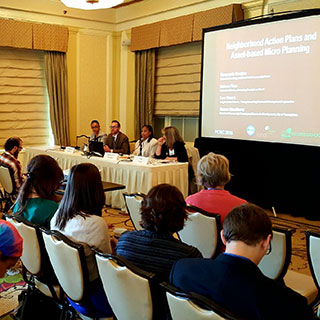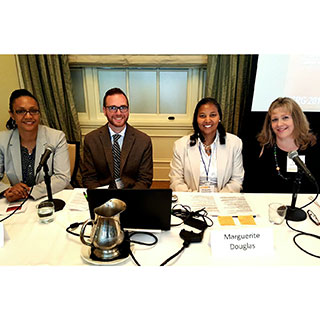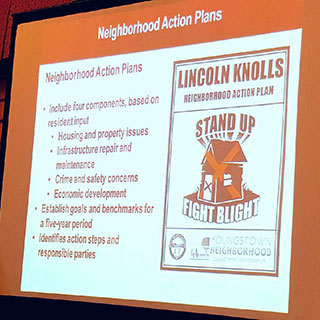YOUNGSTOWN, Ohio - The city of Youngstown is the recipient of a $60,000 grant to help it take part in a new initiative to improve the health of people living in low-income neighborhoods.
Youngstown is one of 50 cities around the nation to be selected by The Reinvestment Fund and the Robert Wood Johnson Foundation to take part in the new Invest Health initiative.
Invest Health has been created to change the way leaders from mid-size American cities work together to help low-income communities thrive, with specific attention to community features that drive health such as access to safe and affordable housing, places to play and exercise, and quality jobs.
Youngstown was selected from more than 180 teams from 170 communities that applied to the initiative.
Cities with populations between 50,000 and 400,000 were asked to form five-member teams including representatives from the public sector, community development, and an anchor institution, preferably academic or health-related.
The Youngstown team comprises representatives from Youngstown City Health District, Youngstown Neighborhood Development Corporation, Youngstown State University Regional Economic Development Initiative, Mercy Health Foundation - Mahoning Valley, and Eastgate Regional Council of Governments and will work to reduce obesity and other chronic health disparities through improving infrastructure and the built environment and reduce long term developmental disabilities among children caused by substandard housing conditions.
"Our cross sector team is excited to continue our work to improve Youngstown neighborhoods and further enhance our strategies to improve health outcomes by strengthening neighborhood housing quality and infrastructure conditions," Ian Beniston, Executive Director, Youngstown Neighborhood Development Corporation.
Mid-size American cities face some of the nation's deepest challenges with entrenched poverty, poor health and a lack of investment. But they also offer fertile ground for strategies that improve health and have the potential to boost local economies. The program has the potential to fundamentally transform the way Youngstown improves opportunities to live healthy lives by addressing the drivers of health including jobs, housing, education, community safety and environmental conditions.
"With a long history in community development finance, we are excited to help create a pipeline to channel capital into low-income communities through public and private investments," said Amanda High, Chief of Strategic Initiatives at Reinvestment Fund. "Our goal is to transform how cities approach tough challenges, share lessons learned and spur creative collaboration."
Over the next 18 months, Invest Health teams will take part in a vibrant learning community, have access to highly skilled faculty advisors and coaches who will guide their efforts toward improved health, and receive a $60,000 grant. Youngstown will also engage a broader group of local stakeholders to encourage local knowledge sharing. Learning from the program will be synthesized and disseminated through the project website.
"Public officials, community developers, and many others have been working in low-income neighborhoods for years, but they haven't always worked together," said Donald Schwarz, MD, MPH, MBA, RWJF Vice President, Program. "Invest Health aims to align their work and help neighborhoods thrive by intentionally incorporating health into community development."
Project teams will travel to Philadelphia for a kick-off meeting on June 7th and will meet regularly to share lessons learned throughout the 18-month project. A full list of awardees and more information is available at www.investhealth.org.
To read the full story on wfmj.com, click here.
 ,
,  ,
, 
 ,
,  ,
, 
 ,
,  ,
, 